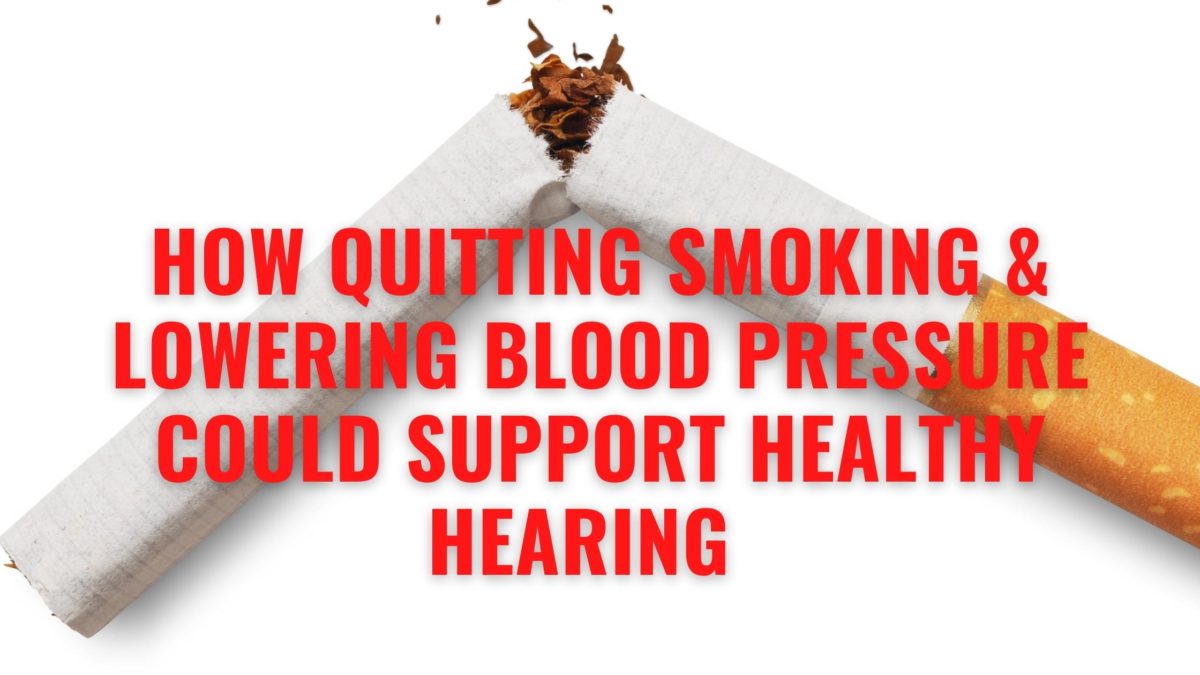Our hearing ability is not isolated to the ears. In addition to the auditory nervous system linking with the brain, hearing ability is part of a broad network of connections within the body. Take, for instance, the heart. Although the heart is an individual muscle in the chest, its ability to push oxygenated blood throughout the body means that it is essential to all of the body’s functioning. Without oxygen and nutrients, no part of the body can do what it needs to do. Other parts of the body are indirectly related to others.
When we think about the factors that can support or hinder healthy hearing, this type of thinking is quite important. There are things you can do to promote a healthy body, and these habits can have significant outcomes for bodily functions that could surprise you, such as hearing. Let’s look at two factors that have a strong relationship with hearing loss—smoking and blood pressure. If you take steps to promote a healthy lifestyle regarding these two facets, you can promote good health not only in the heart, lungs, and blood vessels, but also in the ears.
Smoking and Hearing Loss
One of the ways smoking is connected with hearing loss has to do with the levels of oxygen in the bloodstream. The relatively few and very fragile hair cells in the inner ear are perfectly equipped to detect subtle differences in sound. However, that same ability to be sensitive to slight differences makes them vulnerable to damage. These cells require adequate oxygen to do their job in the body, and the nicotine and carbon dioxide in the bloodstream can reduce the levels of oxygen that makes its way to these fragile cells. Smoking is thought to be related to hearing loss in many other ways, as well. It is speculated to interfere with neurotransmitters in the auditory nerve, preventing electrical impulses from traveling efficiently to the brain. Smoking is also thought to trigger the release of free radicals that can damage DNA. With these many effects in mind, smoking cessation should be a top priority for anyone who cares about preserving their hearing ability.
Blood Pressure and Hearing Loss
Blood pressure is another of these measures that serves as a diagnostic for other mechanisms in the body. When you have high blood pressure, you are receiving two readings. The top number measures how much pressure or stress is placed on the blood vessels when they are full of blood. The lower number measures the pressure in between beats of the heart, when there is no blood flowing through.
High blood pressure simply means that there is a high degree of strain on the blood vessels, and the heart is working too hard to push the blood through. This high-pressure level can be caused for many reasons. One of them is the buildup of a fatty plaque on the walls of the blood vessels, effectively making those chambers narrower. It is more difficult to push a fluid through a smaller space, so the heart has to work overtime to get oxygen to all the parts of the body. When there is less oxygenated blood traveling to the ears pump after pump, they can become deprived of what they need to thrive, much as is the case with a smoker’s oxygen levels in the bloodstream.
Heart-healthy practices, such as exercise, can promote a stronger muscle that is better able to deal with constricted blood vessels. However, a healthy diet that is low in saturated fats can also reduce the production of that fatty plaque.
Treating Hearing Loss
If you are concerned with your hearing health, it is important to look not only at the direct effects coming from external sources, such as noise exposure. Indirect effects can lead to a reduced supply of oxygen coming through the body, leading to the deprivation of those tiny, fragile cells. A healthy body is a network of interrelated parts, so be sure not to think of your hearing health in isolation. Healthy practices such as quitting smoking, exercising, and eating a diet low in saturated fats can add up to a healthy body that includes preventing hearing loss.
To learn more about hearing loss and the benefit of treatment, contact us today! We provide comprehensive hearing health services, from hearing tests to hearing aid fittings.

